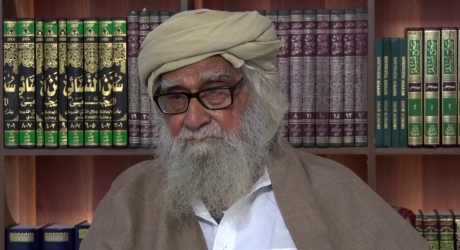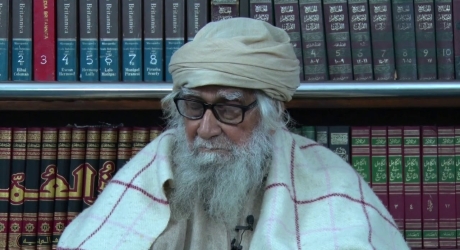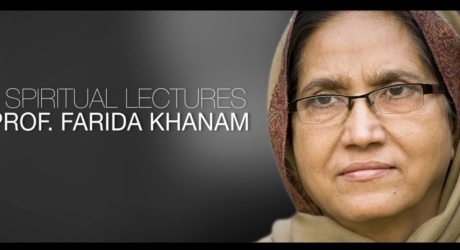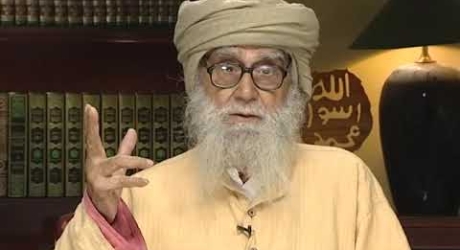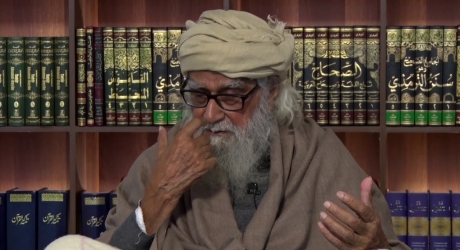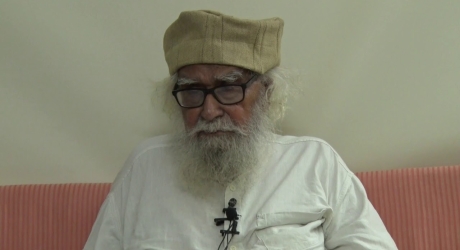The call to God is a sacred mission. This mission basically entails conveying the message of God peacefully. It is a prophetic mission. Conveying the message of God or Dawah work gives the proponent the opportunity to devote himself to outside activities. For the fulfilment of his task, he turns his zeal outwards. Externally targeted, the crusading spirit is then optimally exercised.
The accomplishment of the mission of calling people to God by Muslims brings divine grace to them, and develops in the community all those exalted qualities that are considered to be the key to unity.
The history of Islam presents ample proof of the above mentioned facts. The period of thirty years after the death of the Prophet, when Muslims were engaged in the task of propagating Islam in the outer sphere, was marked by complete unity in Muslim ranks. But with the beginning of internal conflicts in the last days of Caliph Uthman, the process of the spread of Islam was stopped for ten years. However, the task of propagating Islam was resumed by Muslims when internal conflict came to an end as a result of the voluntary withdrawal of Hasan ibn Ali from the caliphate, and it continued on course for the next twenty years. Again, it was permanently disrupted due to conflict between Banu Umayyah and Banu Hashim on the issue of political reform after Amir Mu’awiyah’s death in 680 AD.
Muslims are now paying the penalty for having given up the cause of spreading Islam, due to their unceasing internal conflict over the centuries. These conflicts are ostensibly taking place in the name of Islam, but in fact nothing is more un-Islamic in the world of God than this lamentable disunity.
The call to God is basically the title of the Islamic mission to convey the message of God. In the general sense, call to Islam entails the popularization of the purely basic teachings of the religion for religious harmony.
Today I would like to begin with a memorable evert from my life. In June 2011, I visited the USA. During this visit, I received an invitation from a Christian Church to deliver a lecture there. I accepted this invitation, and delivered a lecture. The subject was “Islam and Peace”. After listening to my lecture, a Christian scholar asked a question. He said: “According to the New Testament, Jesus said: 'Love your enemy.' Can you cite a teaching of this kind from the Quran?” I said: “Yes. According to our belief, Jesus was a Prophet of God, just as other prophets were. And, according to the Quran, all the prophets were given the same teachings from God Almighty. There was no difference between the teachings of the prophets. The Quran says: 'We make no distinction between any of them.' (2:136) The above teaching of Jesus can be found in the Quran as well. In Chapter 41, the Quran says: 'Good deeds and bad deeds are not equal. Do good deeds in return for bad deed, and you will find that your enemy has become your dearest friend.' (41:34) This Quranic verse refers to a law of nature. According to this, everyone was born on the same nature. There is no difference between people. So, there is no enemy or foe. All are friends, either potential or actual. If someone appears to be an enemy, we do not have to take him as such, rather we have to take him as a potential friend. We must do good deed in return for his bad deed and after sometime we will find that he has become our friend.”
Love Your Madu
I will add one more point. What Jesus said is not simply an ethical principle or part of social manners. It is rather the culture of dawah work. Why is this so? Because, Jesus was a dayee. He spent his whole life doing dawah work. Also, he instructed his disciples to do dawah. His above saying can be seen in this background. That is, his saying “love your enemy” actually meant “love your madu”. Because, if you take your madu as your enemy then you cannot perform dawah properly. So, loving one's enemy is not social ethics, but ethics of dawah. In this sense, every prophet was a dayee. All the prophets adopted this principle. It is very important to adopt this culture. Why? If you take your madu as your friend, then only you can do dawah work, or what I say, quality dawah work. Quality dawah work can be done only when you love your madu. When you love your madu, it means you are doing your dawah as a mission, not as a profession. A person who does something as a profession, need not love his customer or the other person. Because, his job is to do something merely as a profession. But dawah is a mission. It requires the culture of love, that is, the dayee should love his madu. Otherwise, the dayee cannot do dawah with its true spirit.
If you do dawah as a profession, then that is not a rewardable act. You will then not deserve any reward. Because, doing something as a profession means you are doing your work for your own interest. Every person involved in a profession seeks some return. So, if you do dawah work as a profession, it means you are receiving some return, either in terms of money or fame. While, in reality dawah work is not any profession of this kind, it is rather a mission. Therefore, dawah has to be done without any interest. If you do dawah in this manner, you will develop love for your madu. Such quality dawah will give you the great reward of Paradise. If you do quality dawah work, it will certainly be acceptable to God Almighty.
Dawah Ethics
I will narrate a story from the life of the Prophet of Islam. He was born in Mecca in 570 AD, and started his mission in Mecca in 610 AD. After thirteen years of beginning his mission, the Prophet migrated from Mecca and settled in Medina. At that time, half of Medina's population was comprised of Jewish tribe. So, everywhere there were encounters between Muslims and Jews. One day the Prophet saw a funeral procession passing through a street in Medina. He stood up in respect of it. One of his Companions said: “O Prophet, it was the funeral of Jew, not a Muslim.” The Prophet said: “Was he not a human being?” (Bukhari). Here, the word “human being” also denotes madu. That is, the Prophet meant: “Was he not a madu?” that is, If he is a madu, I will pay respect to him. In the eyes of the Prophet, the Jews were madu, and so he didn't develop hate for them. This is because in the eyes of the Prophet, all are madu. Thus, he adopted the culture of love towards all. The relationship between dayee and madu is like that between businessman and customer. There is a well-known formula in the business circle, which is known as “customer is always right”. That is, the businessman knows that if he develops hate for his customer, he won't be able to do business with him. So, for his business interest, he adopts the customer-friendly behaviour. The same is applicable to the dayee. The dayee must adopt the madu-friendly behaviour, not merely as a social manner, but in its true spirit. The dayee must adopt this culture as a mission.
The above saying of Jesus was also practiced by the Prophet of Islam. This is the gist of Islam, the gist of every religion. Every believer is a dayee. Every prophet was a dayee, so is the case with every believer. When every believer is a dayee, it is obligatory for him to develop friendly relations with himself and others. Because, without adopting a friendly nature, you cannot do quality dawah or even adopt dawah as a mission. Your dawah will not be acceptable to God if you do not have this spirit. Moreover, it will not lead to any positive result. When the madu thinks that the dayee is very sincere and a well-wisher for him, then alone will he give attention to dayee's message, otherwise he will not.
Avoid Controversy with the Madu
So, “Love your enemy” is ethics of dawah. Here, “enemy” means madu. Jesus said to his disciples: “Love your madu.” Jesus' disciples are those people who did dawah work among different people. When Jesus sent his disciples to different part of the world, he gave them this very advice. That is, don't take your madu as enemy.
There is a well-known saying of Jesus. He said to his disciples: “If someone takes your coat, do not withhold your shirt from them.” (Luke, 6:29) The Prophet of Islam said the same to his Companions. The Quran also gives the same teaching (22:67). It means: Avoid all kinds of controversy with the madu. Even if the madu wants to take away your shirt, give it to him. The dayee should do this in order only to avoid controversy. That is, the dayee has to avoid controversy with the madu at any cost, for the sake of dawah. If the businessman develops controversy between himself and the customer, there will be no business at all. Same is the case with dawah work.
What is the basic message of dawah. It is inzar (to warn). The Quran says: “Arise and give warning.” (74:2). The Prophet was instructed by God to warn people of the reality of life. That is, to tell people that if you deviate from the right path, the consequences will be very grave. That is, you will go to hell. And if you follow the right path, you will be given a seat in eternal Paradise. All the teachings of the Prophet can be summarized in these words, that is, the prophets wanted to make people aware of the creation plan of God. This was the task of all the prophets. In all ages, people have been engaged in worldly activities. But, the Prophet tells people that the real life begins after death. The eternal life begins after death. You have to prepare in this world for eternity.
Living in the Known World for the sake of the Unknown World
It requires great wisdom, concern and education. At present we are living in a world where everything is observable. The mountains, the sun and the moon, and oceans are observable. But the world hereafter is unknown as it is not observable. The right way of life is to live in the known world for the sake of the unknown world. We have to live in the known world for the sake of the unknown world. To tell people about this important fact, the dayee has to be very sincere and well-prepared. Because, it is not easy to make people aware of this fact as they are all busy in the present world and are absolutely unaware of the Hereafter. Convincing people for this way of life is very difficult. It is thus the dayee's duty to make dawah his greatest concern. He must prepare himself. He must develop himself so that he can convince people. Thus it is the dayee's duty to make this mission his greatest concern. He must prepare himself accordingly. He must try to address people's minds. Only after great effort, will it be possible to convince people towards adopting this pattern of life, that is, living in the known world for the sake of the unknown world, that is, Paradise. It is very difficult and sincere job.
May God bless you and help you realize this great mission!





